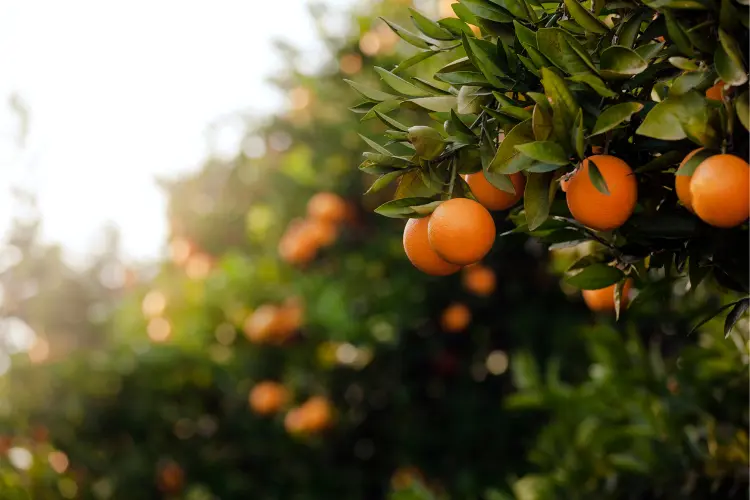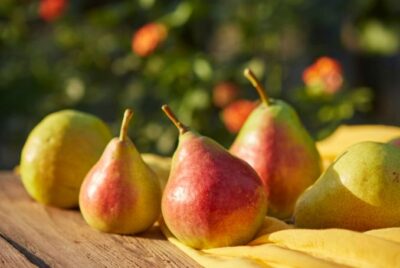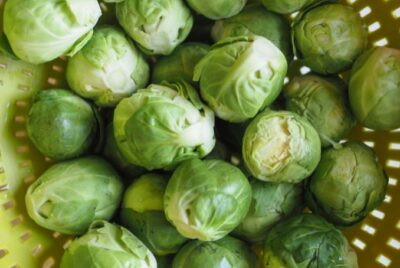Poultry Expert Advice: Can Chickens Eat Oranges Safely?
While feeding chickens a diverse diet is a great way to keep them happy and healthy, it’s crucial to be aware of the risks associated with certain foods. One common question among chicken owners is whether chickens can eat oranges safely. While oranges offer some nutritional benefits, they also have specific risks you must consider carefully.
Understanding the dos and don’ts of feeding chickens oranges is crucial to ensure their well-being. In this discussion, we’ll explore the safety aspects of including oranges in your chickens’ diet and provide guidelines to help you make informed decisions.
Is It Okay for Chickens to Eat Oranges?
Chickens can safely eat oranges but in moderation. Oranges can be a healthy treat for chickens, providing them with a good source of vitamins, particularly vitamin C.
However, you must feed them in moderation due to their high acid and sugar content, which can be hard on a chicken’s digestive system if consumed in large amounts. Also, most chickens do not enjoy the taste of citrus fruits and prefer to look for something else.
What Is the Appropriate Amount of Oranges for Chickens to Eat?

The appropriate amount of oranges for chickens to eat is small, considering their overall diet. You should treat oranges as a treat, not a staple, part of their diet. A good rule of thumb is to follow the 90/10 rule: 90% of their diet should consist of their regular chicken feed, and only 10% should be made up of treats, including oranges.
For an average-sized chicken, this translates to about a few small pieces of orange per chicken, no more than two or three times a week. It’s essential to cut the orange into small, manageable pieces to prevent choking and to remove any seeds that can be harmful.
Overfeeding oranges can lead to digestive issues and nutritional imbalances, so moderation is key when feeding chicken oranges. Always observe how your chickens react to new treats, and consult a veterinarian if you have concerns about their diet.
Health Advantages of Oranges for Chickens

Oranges can provide several health benefits for chickens when included in their diet in moderation. These benefits are mainly due to the nutrients found in oranges:
- Boosts Immune System: Orange fruits are rich in Vitamin C, an antioxidant that strengthens the chicken immune system. It supports the chickens’ defense mechanisms against infections and diseases.
- Hydration: Orange fruits have a high water content, which can help keep chickens hydrated.
- Improved Digestive Health: The fiber in oranges can aid digestion. A well-functioning digestive system is essential for the overall well-being of chickens.
- Antioxidant Properties: Besides Vitamin C, oranges contain other antioxidants like flavonoids and carotenoids. These compounds can help protect the chickens from cellular damage and reduce inflammation.
- Heart Health: The nutrients in oranges, such as Vitamin C and flavonoids, can contribute to cardiovascular health. They help in managing cholesterol levels and ensuring healthy blood circulation.
- Cancer Prevention: Some research said that the antioxidants in oranges, like lycopene (particularly in blood oranges), may minimize the risk of certain cancers.
- Bone Health: Oranges contain Vitamin C and other nutrients that can contribute to the bone health of chickens, aiding in the development and maintenance of strong bones.
- Vision Support: Vitamin A and other compounds in oranges can support eye health in chickens.
- Low-Fat Treat: Oranges are low in fat and can be a healthy treat option for chickens without the risk of excessive weight gain.
Potential Hazards of Feeding Oranges to Chickens
- Sour Crop: The high sugar content in oranges can increase the risk of sour crops in chickens. A sour crop is a condition where the crop, a part of the digestive system that stores food temporarily, becomes impacted and slowed down due to the fermentation of sugars. This can cause digestive issues for the chickens.
- Candida Infections: The high sugar concentrations in oranges can promote yeast growth, including Candida. Chickens can develop Candida infections in their crop and digestive system, leading to health problems.
- Hyperglycemia: Hyperglycemia in chickens can lead to various health issues, including inflammation, high blood pressure, weight gain, and even diabetes.
- Stomach Upset: Oranges are acidic, and their acidity level is relatively close to a chicken’s stomach. Feeding too many oranges can upset a chicken’s stomach, leading to digestive discomfort and potential health problems.
- Mold and Spoilage: Moldy or spoiled oranges can be dangerous for chickens. Mold can affect their digestive system and cause infections. It’s essential to provide fresh and uncontaminated oranges to chickens.
- Nutrient Imbalance: While oranges offer specific vitamins and minerals, they should not be the primary source of nutrition for chickens. Feeding too many oranges can result in an imbalance in their diet, as they require a balanced and complete poultry feed for proper growth and health.
Proper Methods to Feed Oranges to Chickens

Peel the Oranges
Before offering oranges or any citrus fruit to chickens, I recommend peeling them. Remove the peel and discard it. Chickens may have difficulty peeling oranges themselves, and the peel can be tougher to digest.
Chop into Manageable Slices
After peeling the oranges, chop them into manageable segments or pieces. Slicing makes it easier for chickens to eat and reduces the risk of consuming large quantities at once. Smaller pieces are also less likely to cause digestive issues.
Clean Up Post-Feeding
Chickens can be messy eaters, and orange juice and pulp may spill around their feeding area. Clean up any orange residue promptly to prevent attracting pests and to keep the area clean.
Remove Leftover Oranges
After the chickens have finished eating, remove any leftover orange pieces from their coop or enclosure. Leaving food scraps behind can attract rodents or other unwanted pests.
Monitor for Digestive Issues
Keep an eye on your chickens for any signs of digestive discomfort or health issues after introducing oranges. If you notice any problems such as sour crops or diarrhea, reduce or eliminate oranges from their diet and consult a veterinarian if necessary.
Is It Okay to Feed Chickens Orange Peels?

Yes, feeding chickens orange peels is generally okay, provided they are clean, free from pesticides and mold, and cut into small, manageable pieces to prevent crop obstructions.
Orange peel is less appealing to chickens due to their tough texture and bitter taste, but they can still be a nutritious addition to their diet. These peels contain fewer sugars than the fruit pulp but are rich in vitamins, particularly vitamin A, which can benefit chicken health.
Additionally, orange peels may contribute to darker egg yolks due to the presence of xanthophylls, although other sources, like marigolds, may be more effective. As with any treat, moderation is key to ensure a balanced diet for your chickens and to prevent overconsumption of orange peels.
Other Fruits to Include in Your Chickens’ Diet
- Watermelon: Chickens love watermelon, especially during hot weather. It has a high water content, which helps keep them hydrated. Be sure to remove the seeds before feeding them to chickens.
- Blueberries: Blueberry fruits are a nutritious treat for chickens. They contain antioxidants, vitamins (particularly vitamin C), and dietary fiber. The antioxidants in blueberries can help boost their immune system and overall health. Blueberries are also relatively small and can be fed whole or chopped.
Chickens and Oranges Summary
In conclusion, chickens can safely enjoy oranges as a treat when offered in moderation and with careful attention to safety guidelines. While oranges provide valuable nutrients and hydration, you must maintain a balanced diet for your chickens and ensure that treats like oranges are clean, prepared appropriately, and given in reasonable quantities. You can offer your feathered friends a refreshing and nutritious citrus snack with the right precautions.




